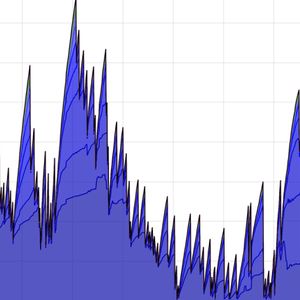Hold on to your hats, crypto enthusiasts! The world of digital assets just witnessed a seismic shift. In a stunning development that’s sending ripples across the financial landscape, the Wisconsin Investment Board, managing billions in public funds, has boldly announced a massive $321.5 million stake in the iShares Bitcoin ETF (IBIT). Yes, you read that right – a major state investment board is now directly exposed to Bitcoin through a spot ETF! This news, initially unfolded by Unfolded on X (formerly Twitter), isn’t just another headline; it’s a powerful signal of mainstream acceptance and the accelerating institutional adoption of Bitcoin. Why is the Wisconsin Investment Board’s Bitcoin ETF Investment a Big Deal? This isn’t your average crypto headline. The Wisconsin Investment Board (SWIB) manages the assets of the Wisconsin Retirement System, the State Investment Fund, and other state trust funds. We’re talking about safeguarding the financial future of public sector employees in Wisconsin. Their decision to allocate a significant chunk of capital to a Bitcoin ETF speaks volumes about the evolving perception of Bitcoin as a legitimate asset class. Let’s break down why this move is so monumental: Institutional Validation: SWIB’s investment is a powerful endorsement of Bitcoin from a traditional financial institution. It signifies that sophisticated investors are increasingly comfortable with Bitcoin’s risk-reward profile and see it as a valuable portfolio diversifier. This is a far cry from the days when Bitcoin was dismissed as a fringe asset. Size Matters: $321.5 million is not a trivial amount. This substantial allocation demonstrates serious conviction and commitment, not just a toe-in-the-water approach. It’s a clear indicator that institutional investors are ready to deploy significant capital into the Bitcoin ETF market. Precedent Setting: Wisconsin’s move could pave the way for other public pension funds and institutional investors to follow suit. Pension funds often move cautiously, but once a reputable entity like SWIB makes a move, it can reduce perceived risk for others. This could trigger a domino effect, leading to even greater institutional capital flowing into Bitcoin. Market Impact: Such large investments inject significant liquidity into the Bitcoin market, potentially driving up demand and price. While the immediate price impact might be factored in, the long-term effect of increased institutional participation is overwhelmingly positive for Bitcoin’s price stability and growth. Navigating the World of Crypto Investment: What are Bitcoin ETFs and Why are They Popular? For those new to the crypto space, Bitcoin ETFs (Exchange Traded Funds) are investment vehicles that allow investors to gain exposure to Bitcoin without directly holding the cryptocurrency. Think of it like investing in gold through a gold ETF – you own shares representing Bitcoin, but you don’t have to worry about private keys, crypto wallets, or exchanges. Their popularity stems from several key advantages: Benefit Description Accessibility Bitcoin ETFs are traded on traditional stock exchanges, making them easily accessible to retail and institutional investors through brokerage accounts they already use. Regulation & Security ETFs are regulated financial products, offering a level of security and investor protection that is often lacking in the direct cryptocurrency market. Custody of the underlying Bitcoin is handled by reputable institutions. Tax Efficiency (Potentially) Depending on the jurisdiction and individual circumstances, investing through an ETF can sometimes offer tax advantages compared to direct Bitcoin ownership. Diversification Bitcoin ETFs allow for easy portfolio diversification into crypto assets without the complexities of direct crypto management. Institutional Investment in Bitcoin: A Turning Point? The Wisconsin Investment Board’s foray into Bitcoin ETFs is not happening in a vacuum. It’s part of a larger trend of increasing institutional interest in digital assets. Several factors are driving this shift: Maturity of the Market: The cryptocurrency market, while still volatile, is maturing. Infrastructure is improving, regulatory frameworks are becoming clearer (albeit slowly), and established financial institutions are entering the space. Inflation Hedge Narrative: In an era of rising inflation, Bitcoin is increasingly viewed as a potential hedge against the devaluation of fiat currencies. Institutional investors are seeking alternative assets to preserve and grow capital. Client Demand: Many institutional investors are responding to growing client demand for exposure to digital assets. High-net-worth individuals and even some retail investors are pushing for crypto options in their portfolios. Performance: Bitcoin’s historical performance, despite its volatility, has been compelling. Institutions cannot ignore the potential returns offered by this emerging asset class. Challenges and Considerations for Institutional Bitcoin ETF Adoption While the Wisconsin news is undeniably positive, it’s crucial to acknowledge that institutional Bitcoin ETF adoption is still in its early stages and faces certain challenges: Volatility: Bitcoin remains a volatile asset. Institutional investors, particularly those managing public funds, must carefully consider risk management and portfolio allocation strategies to mitigate potential downside. Regulatory Uncertainty: The regulatory landscape for cryptocurrencies is still evolving globally. Uncertainty can create hesitancy and require careful navigation by institutional investors. Fiduciary Duty: Pension funds and other fiduciaries have a responsibility to act in the best interests of their beneficiaries. Investing in a relatively new and volatile asset class like Bitcoin requires thorough due diligence and a well-defined investment thesis. Education and Expertise: Understanding the nuances of cryptocurrency and blockchain technology is crucial. Institutions need to build internal expertise or partner with specialists to effectively manage crypto investments. Actionable Insights: What Does This Mean for You? The Wisconsin Investment Board’s investment in a Bitcoin ETF offers several key takeaways for both individual and institutional investors: Validation for Crypto: This move reinforces the legitimacy of Bitcoin and the broader crypto market as an investable asset class. It’s a sign that crypto is moving further into the mainstream financial system. Consider Bitcoin ETFs: If you’ve been hesitant about directly buying Bitcoin, ETFs offer a regulated and accessible way to gain exposure. Do your research and consider if a Bitcoin ETF aligns with your investment goals and risk tolerance. Institutional Interest is Growing: Keep an eye on institutional adoption trends. Increased institutional investment can be a significant driver of long-term growth for Bitcoin and the crypto market. Stay Informed: The crypto space is dynamic. Stay updated on regulatory developments, market trends, and institutional activity to make informed investment decisions. A Colossal Leap for Bitcoin: The Future is Now? The Wisconsin Investment Board’s groundbreaking $321.5 million bet on a Bitcoin ETF is more than just a financial transaction; it’s a landmark moment in the history of cryptocurrency. It signals a profound shift in perception, a growing acceptance of Bitcoin by traditional finance, and potentially the beginning of a new era of institutional crypto investment . As more institutions follow suit, the future of Bitcoin and the entire digital asset ecosystem looks increasingly bright. This colossal investment serves as a powerful reminder: the crypto revolution is not just coming; it’s already here, and it’s being embraced at the highest levels of finance. To learn more about the latest crypto market trends, explore our article on key developments shaping Bitcoin institutional adoption.














